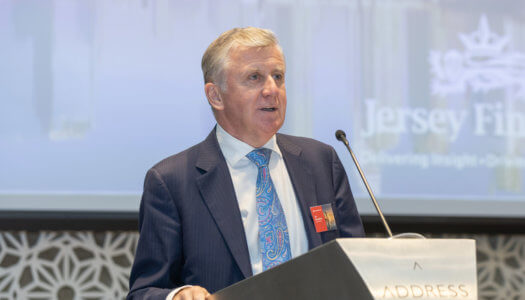Attention across the UK, Europe and further afield is now turning to rebuilding the economies and communities impacted by the fallout of the COVID-19 pandemic – but the road ahead of us all is long and complex, and it’s vital that sensible heads and rational debate prevail as we work together as an international community to aid recovery.
For International Finance Centres (IFCs), the coming months are likely to be challenging, but the reality is that quality IFCs not only have a role to play in economic and social recovery but that the expertise, neutrality and stability they offer is absolutely fundamental in enabling economies to be rebuilt.
Post-crisis response
There are clear bumps in the road ahead – already in recent weeks, the spotlight has turned on IFCs just as they did in the wake of the global financial crisis more than a decade ago. Back in 2008/9, lobby groups and governments sought to find ways to soften the burden of austerity and plug debt and a popular option was to divert attention away by pointing the finger at IFCs.
Those same arguments are re-emerging now.
Governments have taken on unprecedented levels of borrowing to support people and businesses who have been financially impacted by the pandemic and are now faced with the prospect of having to find ways to repay massive levels of debt. Reports have estimated that in the UK, the country’s deficit could reach £337bn in 2020 because of the outbreak.
Rebuilding could take years, nothing is off the table, and tax rises seem inevitable – according to a survey of 75 UK MPs by The House, for instance, 72% agree “taxes will increase to fund public services” – but there are real difficulties associated with putting greater tax burdens on the general public. It seems likely that wealth taxes of some sort will form part of government responses, though it is far from certain how that will play out –inheritance tax or capital gains tax have been reported as possible targets.
There are clear implications here for IFCs that are specialists in administering private capital and who are likely to find themselves in the crosshairs of a new wealth politics battleground.
Associated with this resurgence of wealth politics, it’s likely that the fallout of the coronavirus pandemic will exacerbate issues around financial and social inequality, given the widespread loss of jobs and livelihoods.
We saw it in the aftermath of the global financial crisis – governments who needed to appeal to the mass electorate were quick to point a finger of blame at the wealthy and their advisers. Of course, the origins of this new crisis are very different to the origins of the crisis over a decade ago, but that won’t make the emotional response to it any easier.
In recent weeks, for example, we have seen governments make headline-grabbing announcements about businesses with entities registered in certain IFCs not being eligible for crisis financial support packages – announcements that really only serve to distract from the key issues and fuels a ‘them and us’ narrative. We can expect further pressure on the IFC landscape – confused and conflated allegations of tax avoidance and so on – in the coming months.
Supporting global flows
These are all challenges that IFCs have had to deal with before – and IFCs that can stand up to scrutiny, engage in sensible debate and demonstrate their positive impact will be in a good position.
In actual fact the services and the expertise provided by good quality IFCs like Jersey – which ranks as one of the best regulated IFCs against global standards – will be vital as the world looks to rebuild.
It is estimated, for example, that global trade will fall by a record 27% in the second quarter of this year, whilst globally foreign direct investment (FDI) is forecast to drop by up to 40% in 2020 compared with the previous year, according to UNCTAD. Capital Economics forecasts that Eurozone business investment will fall 24% year on year over 2020.
Overall, the picture is definitely not rosy, and the need for impactful, secure investment flows will be more important than ever over the coming years, to rebuild infrastructures, communities and businesses. That makes IFCs like Jersey, that have decades of experience in doing just that – putting capital to work around the world efficiently, quickly and securely – absolutely crucial.
Research points to the fact, for instance, that IFCs help facilitate FDI to the tune of some $80bn each year, supporting investment in infrastructure, brownfield and greenfield development sites in all corners of the globe.
And far from IFCs like Jersey being a drain on other countries, Capital Economics research shows that Jersey provides a net benefit to the UK of £14bn each year, supporting more than 250,000 jobs. In Europe it’s a similar story – Jersey facilitates almost €200bn of overseas investment into the Eurozone, supporting approaching 100,000 jobs.
In recent weeks, we’ve already seen examples of Jersey firms supporting international recovery such as putting in place financing and capital raising structures for UK and international firms to keep them viable.
Of course, Jersey must adapt too, and over recent weeks we have amended laws to help keep business moving, introduced added flexibility to support investors and implemented digital solutions to make it easier to complete transactions. And we are open to doing more.
Over the coming months, there will be massive requirements to stimulate capital flows in a highly charged, complex environment, but the evidence is clear – this is not the time for unfounded rhetoric, this is a time for sensible and rational collaboration, for IFCs to work together with the international community, governments and investors to do what they do best – get investment to where it is needed most, securely and efficiently.
The stability, resilience, security and expertise Jersey offers will be rare qualities in this new environment.




